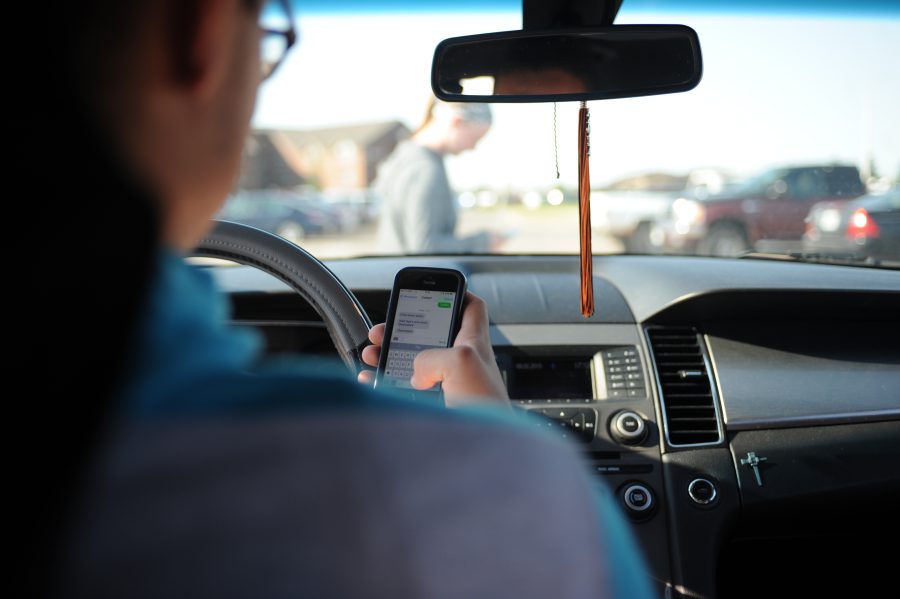BGPD hopes new distracted driving law will make roads safer
April 5, 2023
As of April 4, two laws went into effect to stop drivers from using or holding a phone while operating a motor vehicle, according to the Ohio Department of Transportation.
Bowling Green Police Department’s Lt. Adam Skaff said the distracted driving law moved from a secondary offense to a primary offense, making it so police can stop a driver for distracted driving specifically.
“Distracted driving and hands-free driving are two separate offenses,” Lt. Skaff said. “Hands-free driving is specific to people using an electronic wireless communications device.”
The hands-free driving law prohibits drivers from operating motor vehicles while “holding or physically supporting with a part of the person’s body an electronic wireless communications device (EWCD),” according to Ohio Law.
However, there are exceptions to the hands-free driving law. Drivers cannot be cited when:
- Contacting emergency services
- Driving a public safety vehicle while using the EWCD
- While parked outside of roadways, at a stop light or stopped on a road due to closure or emergency
- Receiving wireless messages for navigation purposes or safety alerts
- Using the speakerphone function of the device
- Using the device for navigation purposes without manually entering anything into the device or holding the device with any part of the body
- Using a feature that is single touch or swipe
- When operating a commercial truck while using a mobile data terminal
- Operating a utility vehicle during an emergency situation
- When using a vehicle’s voice-operated or hands-free functions
- Using technology that physically or electronically integrates the EWCD into the vehicle
- Storing the device in a holster, harness or article of clothing on the driver
The law gives drivers the opportunity to become aware of it for six months before the police start giving out citations.
“For the first six months of the law, only warnings are able to be issued for it. Basically, there’s a six-month grace period where people can’t receive a ticket for (distracted driving or hands-free driving). The idea behind any law is obviously education and trying to increase the safety on the roadway,” Lt. Skaff said.
Lt. Skaff said distracted driving allows police to stop someone for anything that impairs the driver’s ability to operate a vehicle safely.
“Distracted driving is not just texting and driving or talking on your phone, it can be anything that would essentially impair your ability to operate the vehicle safely,” Lt. Skaff said. “Distracted driving can be anything from eating in your car and you can’t control your car, putting on makeup or you’re fiddling with something.”
Drivers can receive a fine of up to $100 in addition to other fines when stopped for distracted driving, according to Lt. Skaff, but fines can be avoided by attending a class.
“State legislature has said that you can avoid that fine by attending a distracted driving safety course,” Lt. Skaff said.
Lt. Skaff hopes these new laws will stop texting and driving overall, making the roadways safer for drivers.
“I hope people stop texting and driving because it’s one of the most dangerous things that you can do, “ Lt. Skaff said. “That said, everyone at some point has done it and we understand that people are going to do it but we ask that you do it in a safe manner.”













